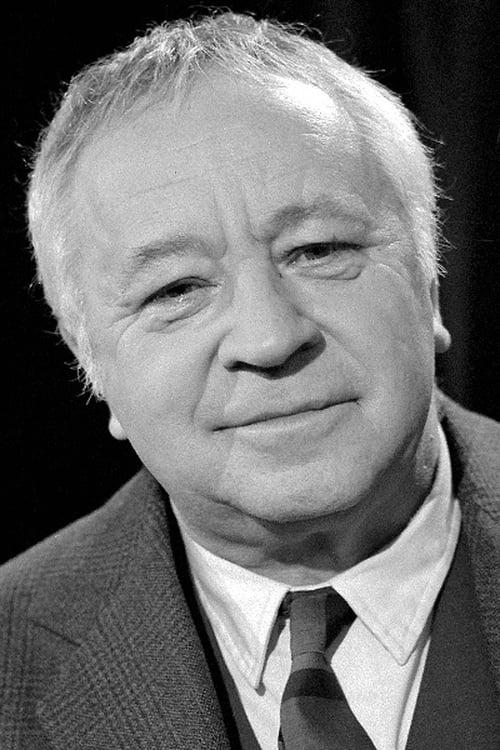Miroslav Horníček
Nascimento : 1918-11-10, Plzeň, Česká republika
Morte : 2003-02-15
História
K divadlu se dostal na plzeňské reálce, kde chodil do ochotnického spolku a se spolužáky založil Studentský avantgardní kolektiv. Po vystudování byl krátce zaměstnán jako úředník v plzeňské nemocnici. V roce 1941 přijal angažmá v Městském divadle v Plzni, brzy po válce odešel do Prahy. Nejprve hrál v Divadle Větrník, o rok později nastoupil k bratrům Oldřichu a Lubomíru Lipským do Divadla satiry. Poté hrál šest let na scéně Národního divadla. V roce 1955 se stal partnerem Jana Wericha v Divadle ABC (Jiří Voskovec po 2. světové válce emigroval do Spojených států amerických). S Werichem hrál šest let, například ve hrách Těžká Barbora nebo Husaři. Po Werichově odchodu roku 1961 vytvořil podobnou dvojici s Milošem Kopeckým. Nehráli však spolu dlouho. Už v roce 1962 se stal na dva roky členem Hudebního divadla v Karlíně a záhy i Divadla Semafor, kde účinkoval například ve hře Člověk z půdy. Působil i vMěstských divadlech pražských, velmi známé a značně populární byly jeho Hovory přes rampu kde přímo z divadelní rampy odpovídal na živé dotazy diváků kladené z hlediště a tak neformálně besedoval s publikem. Hrál také ve filmech. Ztvárnil hlavní role ve filmech Táto, sežeň štěně a Kam čert nemůže a v televizním seriálu Byli jednou dva písaři, dále několik vedlejších rolí v mnoha dalších filmech, z nichž nejznámější je role Krásného prince ve filmové pohádce Byl jednou jeden král. V roce 1965 si zahrál v komediálním snímku z produkce východoněmecké Defy Bez pasu v cizích postelích. Známé je také jeho působení v roli moderátora filmového zpravodajství z Mezinárodního filmového festivalu v Karlových Varech. V roce 1967 se účastnil avantgardního projektu Kinoautomat autorů Radúze Činčery, scenáristy Pavla Juráčka a režisérů Jána Roháče a Vladimíra Svitáčka na světové výstavě v Montrealu. Horníček působil v roli průvodce filmovým představením, které se v určitých dramatických momentech větvilo. Samo publikum rozhodovalo, jak bude děj pokračovat. Zajímavostí je, že on sám neuměl vůbec anglicky. Text měl foneticky odposlouchaný a naučený. Tehdejší novinka vzbudila značný ohlas a po celou dobu výstavy byla představení beznadějně vyprodaná, jednalo se o první případ tzv. interaktivního filmu na světě.
Z tohoto pobytu vytěžil knihu fejetonůJavorové listy, uveřejňovaných původně v Literárních novinách. Po návratu z Montrealu se společně s režisérem Vladimírem Svitáčkem pustili do televizního projektu, který mu přinesl obrovskou popularitu. Scéna byla jednoduchá. Uprostřed publika byl stolek, u kterého seděl nad lahví červeného vína Horníček se svým hostem. Promlouval s takovými osobnostmi, jako byli mj. Jan Werich, Jan Pivec, Jiří Sovák, Július Satinský a Milan Lasica. Do svých rozhovorů vkládal inteligentní humor, který oslovuje mnohé diváky i dnes. V roce 2004 vyšla v reedici kniha Hovory H.. Pořad se vysílal v letech 1968–1971, s nástupem normalizace byl však zrušen. Dochovaly se z něj vzácné televizní záznamy, pořad vyšel i na gramofonových deskách firmy Supraphon, později i na CD. V Plzni je na jeho počest od roku 2000 pojmenováno Horníčkovo divadlo. Byla zde 10. listopadu 2003 odhalena pamětní deska.






